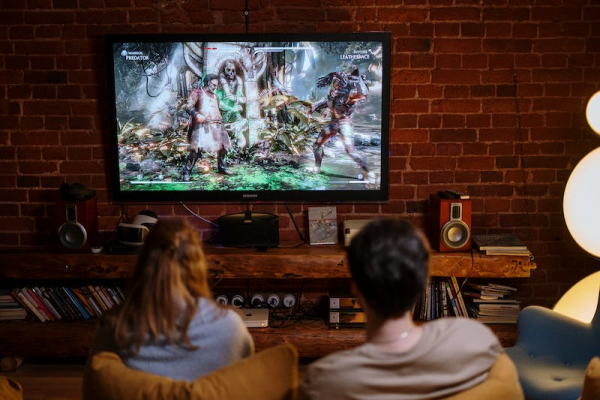
University of Bolton, Deane Road, Bolton. BL3 5AB
Tel:
Email:


“At the University of Bolton, we take great pride in providing a quality, supportive learning environment for our students.”
Professor George E Holmes DL | President & Vice Chancellor
“...tutors are very supportive and you’re not just a student ID number, at this university you are an individual with a name.”
Ellisse Vernon | BSc (Hons) Adult Nursing
Back to menu
Back to menu
Study with an Off-Campus Partner
Back to menu
Back to menu
University of Bolton, why we are the right choice
Location - Bolton, Greater Manchester

21/11/2023
In the world of game development, understanding player psychology is as crucial as mastering the technical aspects of game design.
It’s a fine art of blending human psychology with creative storytelling and interactive design.
In this blog, we’ll explore how game designers, especially those pursuing an MA in Games Development, apply psychological principles to craft immersive and memorable player experiences.
Craft stories and characters that resonate emotionally. Use narrative arcs and character development to create a bond between the player and the game.
You should also utilise visuals and soundscapes that evoke the desired emotional response, whether it's excitement, fear, or tranquillity.
Design reward systems that motivate continued play. This includes:
● Achievements
● In-game rewards
● Visible progression markers
Ensure that players receive constant and positive feedback for their actions, reinforcing their engagement and satisfaction.
Integrate puzzles and challenges that stimulate the mind. Balance difficulty to ensure they are neither too easy nor frustratingly hard.
Develop learning curves that are rewarding and encourage players to develop their skills progressively.
Multiplayer elements are a must. Include elements that encourage interaction, whether cooperative or competitive, to build a sense of community and shared purpose.
Provide tools and features that facilitate player interaction and community building, like chat systems, guilds, or shared objectives.
Design interfaces that are intuitive and easy to navigate, reducing barriers to immersion. Ensure games are accessible to a wide range of players, including those with disabilities, to create an inclusive gaming environment.

Always consider player impact. Be mindful of how game mechanics and narratives might affect players' mental and emotional well-being.
Create engaging experiences while being aware of the potential for addictive behaviors, ensuring a responsible approach to game design.
The psychology of game design goes beyond mere entertainment!
By pursuing an MA in Games Development, you’ll master these psychological principles so you can create games that are not only fun but also provide meaningful and enriching experiences.
At the heart of our degree lies a team-based, hands-on approach, where you'll collaborate with fellow students to form dynamic 'indie' teams, mirroring the real-world game development process.
Guided by our experienced games faculty, you'll embark on a journey of planning, designing, developing, and publishing your own games. It’s about crafting worlds that resonate, challenge, and connect with players on a deeper level.
For more information and to start your journey in game design, reach out to the University of Bolton at enquiries@bolton.ac.uk or call 01204 903903.
Transform your passion into expertise with the University of Bolton.